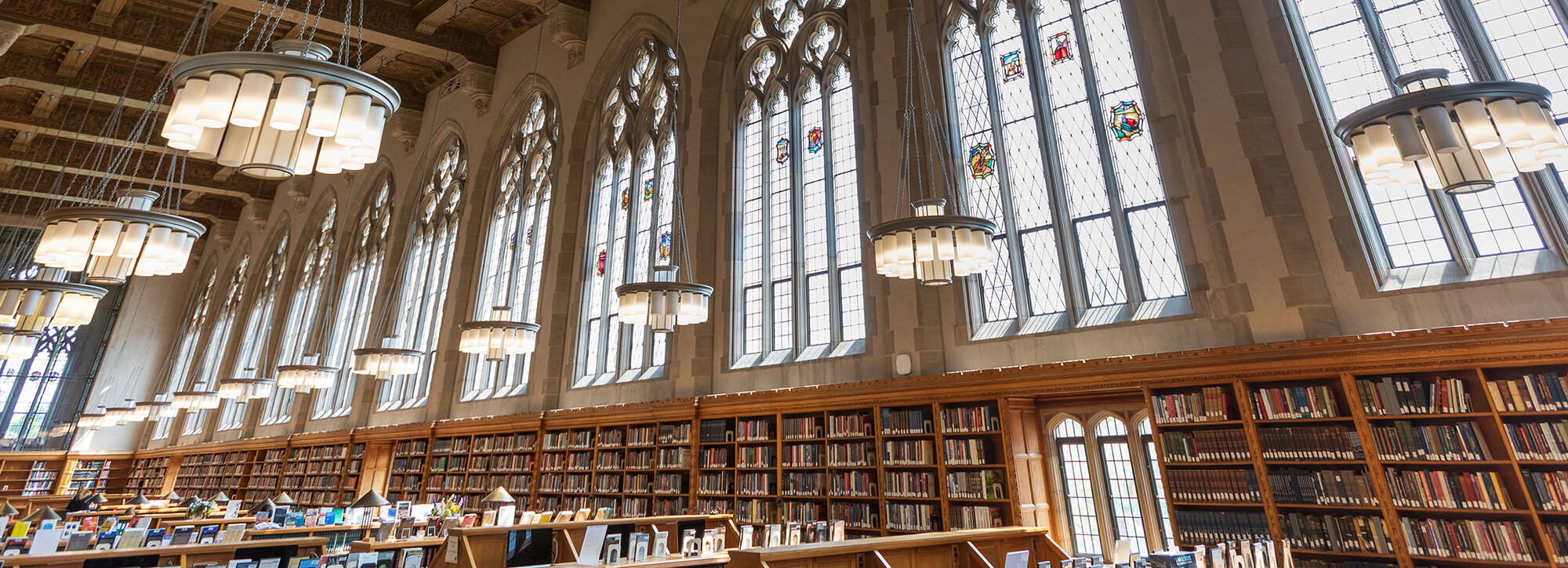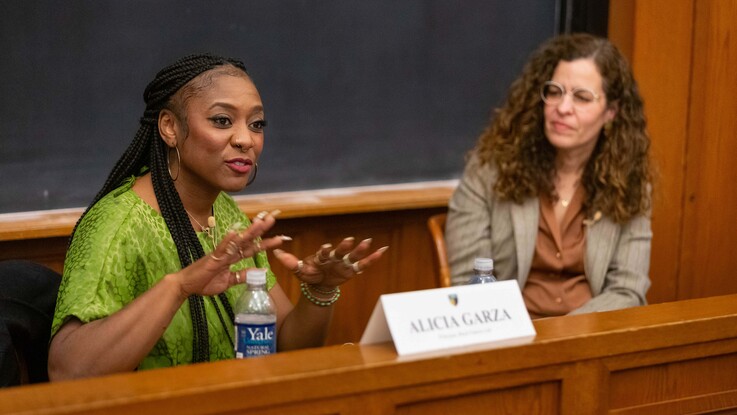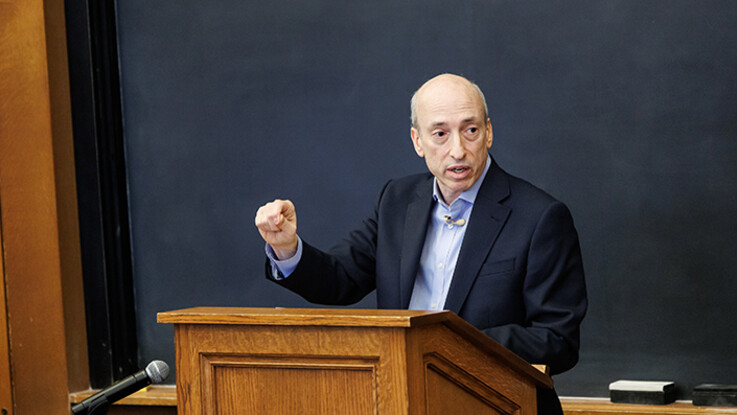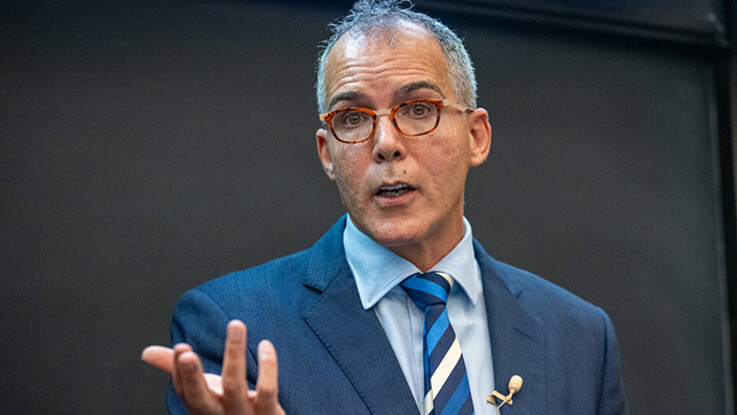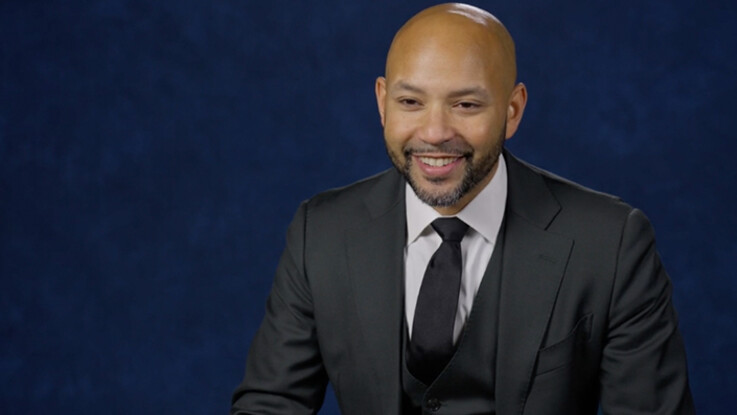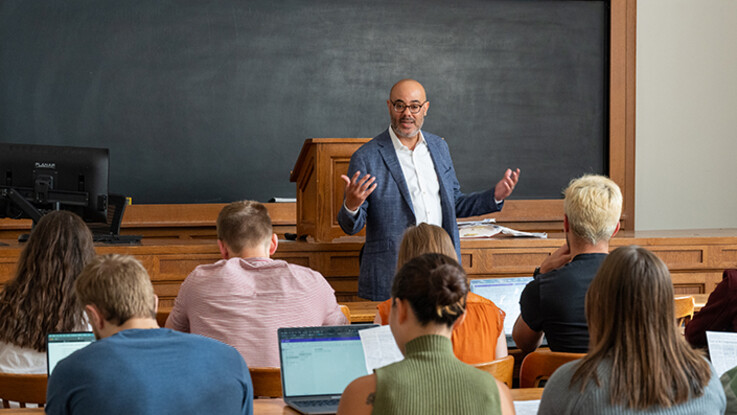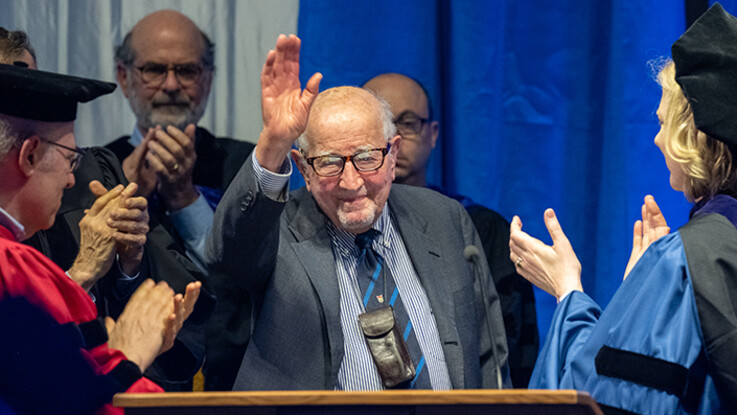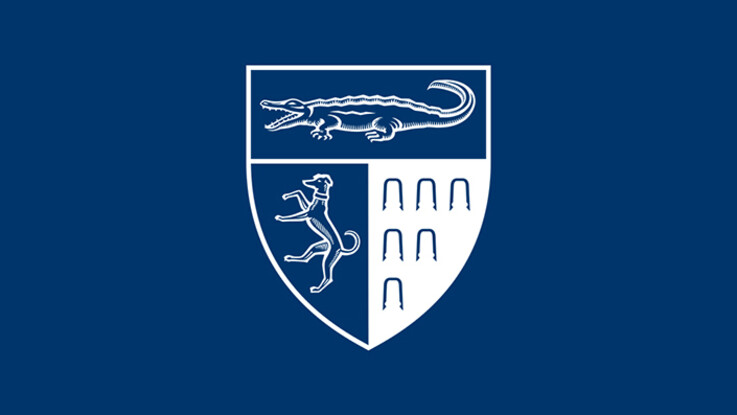Closed captioning has been provided for a number of Yale Law School’s recent videos and will be provided on an ongoing basis in the future. Please be advised that captions are made from video recordings and may be affected by the quality of the recording and contain errors and omissions. Please bring any errors to our attention by emailing publicaffairs.law@yale.edu.
Gruber Distinguished Lecture in Women’s Rights with Alicia Garza
57:41
The Gruber Distinguished Lecture in Women's Rights presented Alicia Garza, an American civil rights activist and writer known for co-founding the international Black Lives Matter movement, on March 4, 2024. The discussion was hosted by Claudia Flores, Clinical Professor of Law.
Regulating AI: A Conversation with Gary Gensler, Chair, U.S. Securities and Exchange Commission
1:16:27
The Yale Law School Center for the Study of Corporate Law hosted a conversation with Gary Gensler, Chair of the U.S. Securities and Exchange Commission, and Professor of Law and Center Co-Director Sarath Sanga '14, on Regulating Artificial Intelligence and other topics on Feb. 13, 2024.
James Forman Jr. ’92: Expanding Access to the Legal Profession after SFFA v. Harvard/UNC
1:04:54
Professor James Forman Jr. ’92 delivered the inaugural lecture of his appointment as J. Skelly Wright Professor of Law on Feb. 12, 2024. The lecture, titled “Expanding Access to the Legal Profession after SFFA v. Harvard/UNC,” presented Forman’s argument that the current moment demands new and creative thinking about how to bring historically marginalized groups into the legal profession.
Conversations on Leadership: Rakim Brooks ’16
8:21
Rakim Brooks ’16, President of the Alliance for Justice, shares his experiences as a first-generation student at Yale Law School and the challenges of taking on a leadership role as a young person.
Yale Law School at 200: A Pioneering Force in Legal Education
5:40
What started as a tiny school by necessity remains small by design to this day. We ensure the next generation of lawyers and leaders step into the world with bold ideas, diverse perspectives, and limitless energy to tackle the pressing challenges they face.
Yale Law School at 200: Guido Calabresi ’58 on His Life and Legacy
3:33
Beloved professor, former dean, and alumnus, Guido speaks poignantly about his decades at the Law School.
Ebrahim Moosa: Critical Traditionalism in Islamic Thought — History, Norms & Modernity
45:18
Ebrahim Moosa of the University of Notre Dame Keough School of Global Affairs gave a Kamel Center lecture on Oct. 5, 2023 titled "Critical Traditionalism in Islamic Thought: History, Norms & Modernity."
Ayse Zarakol: Sovereignty Across the Ages: Centralisation and its Discontents
47:20
Ayse Zarakol of the University of Cambridge gave a Kamel Center lecture on Sept. 14, 2023 titled "Sovereignty Across the Ages: Centralisation and Its Discontents."
